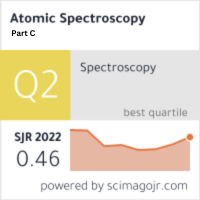Energy-Efficient Cluster Head Selection Protocol in WSNS using Meta-Heuristic Approach
Keywords:
Wireless sensor networks, IoT, network organization, clustering protocols, Cluster Head Selection Protocol, energy efficiency, Meta-Heuristic ApproachAbstract
A significant amount of focus has been placed by the research community over the course of the last ten years on the topic of energy-effective data routing inside wireless sensor networks (WSNs). Also, WSNs have left their mark in a variety of domains; nevertheless, sensor nodes (SNs) are powered utilising batteries and have a limited lifespan. Therefore, the primary aim during the process of building the routing protocols (RPs) is to drop the total energy utilised while also boosting the network’s longevity. The chief purpose of the investigation is to carry out a study on the energy-effective cluster head (CH) selection protocol in WSNs utilising the meta-heuristic approach. The purpose of this review research was to conduct an exhaustive assessment of RPs with the primary objective of extending the network’s lifespan. Studies conducted between the years 2016 and 2024 were the primary focus of this research. Given the findings of this research, because of the constrained resources of sensor nodes in wireless sensor networks and scenarios wherein recharging or supplanting the battery cannot happen easily, it is vital to create and execute energy-effective strategies in order to optimize the chief functional characteristics. This is because charging or swapping the battery is not feasible. In spite of the fact that clustering is widely regarded as the most prominent method for extending the lifespan expectancy inside WSNs, the procedure of selecting CHs to improve the lifespan of the network yet remains a hurdle. Continuous research has been conducted on the development of effective CH determination procedures, data procurement algorithms, and routing optimization algorithms to conjure a solution to this problem.



